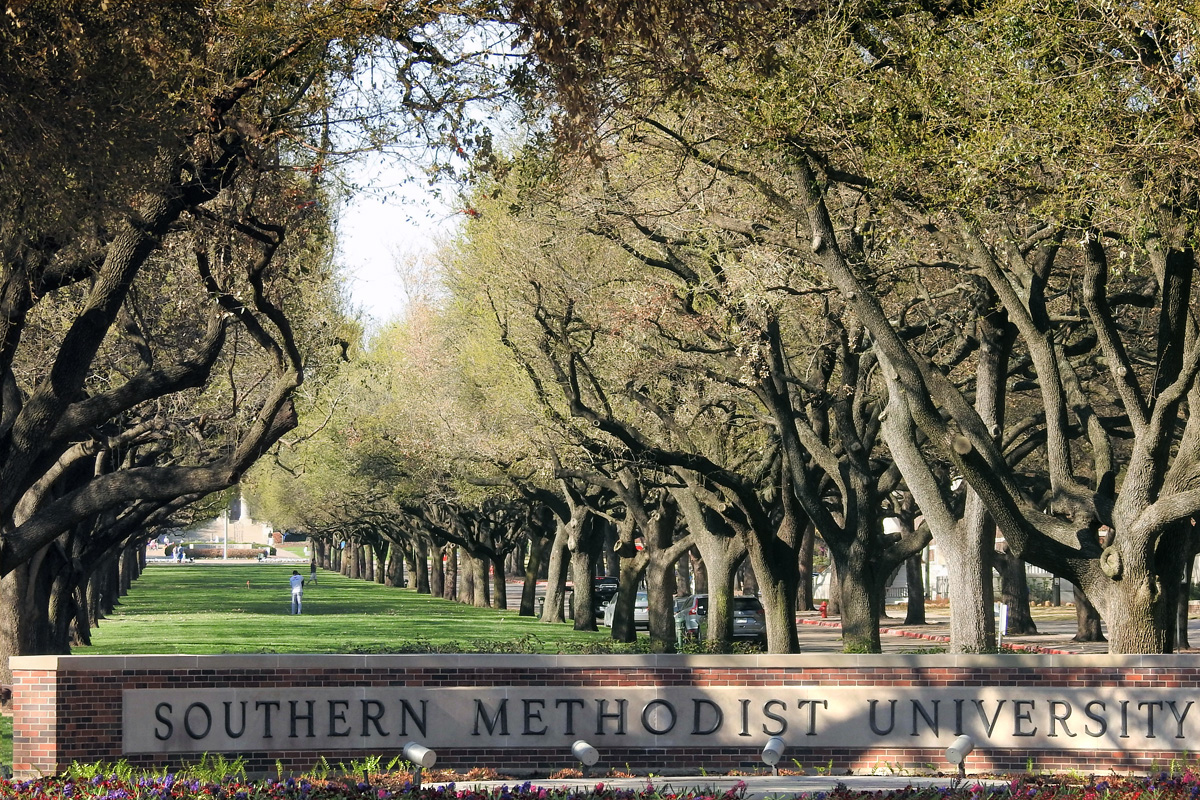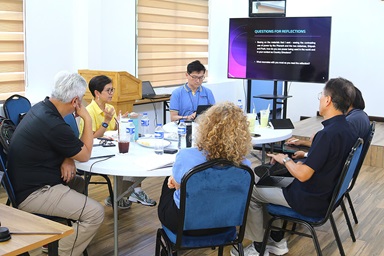Key points:
- A Texas appeals court recently ruled in a lawsuit between Southern Methodist University and the South Central Jurisdictional Conference of The United Methodist Church.
- The appeals court largely sided with the conference in its battle to retain some governance over SMU.
- SMU said it’s considering appealing parts of the new ruling.
A Texas appeals court has largely sided with the South Central Jurisdictional Conference of The United Methodist Church in its nearly four-year battle to retain some governance over Southern Methodist University.
Conference leaders are welcoming the decision, but SMU said it may appeal parts of a complex, 83-page ruling that came down last week.
The dispute dates to November 2019, when SMU’s board of trustees changed the Dallas school’s articles of incorporation.
The revised articles in effect declared SMU’s legal independence from The United Methodist Church, dropping references to the South Central Jurisdictional Conference’s authority over trustee board membership and real estate transactions.
The conference promptly filed suit to challenge the revised articles and protect its own rights.
After hearings and voluminous court filings by both sides, a Texas district court judge dismissed the conference’s claims in 2021. The conference appealed, and a long wait began to see if the early rulings would hold.
On July 26, three judges of Texas’ Fifth Court of Appeals in Dallas concluded that the conference is indeed the “controlling parental entity” of SMU and has standing to challenge the revised articles of incorporation.
The panel reversed the lower court judge’s decision to dismiss the conference’s claim for breach of contract, said the trial court erred in granting summary judgment against the conference on other key claims and sent the case back to the trial court “for further proceedings consistent with this opinion.”
The conference issued a statement, under the headline “The South Central Jurisdictional Conference Recognizes Significant Victories in Appeal,” summarizing its understanding of the ruling.
Louisiana Conference Bishop Delores J. “Dee” Williamston is president of the jurisdictional conference’s College of Bishops and in a statement of her own thanked the conference’s legal team.
“With great faith we are encouraged by the Court of Appeals opinion and we will continue to move forward with guidance of the attorneys,” Williamston said.
SMU released a statement noting that the appeals court rejected the conference’s claim that the school’s assets are held in trust for the conference.
Subscribe to our
e-newsletter
“We are pleased the court confirmed that SMU is held in trust by our Board of Trustees for the benefit of the University,” the statement said. “We are considering our options to appeal other aspects of the court’s decision. As we carry out our educational mission, SMU continues to recognize and honor our Methodist heritage.”
SMU’s appeals options include going directly to the Texas Supreme Court. The case could be extended months or years.
But Missouri Conference Bishop Robert Farr hopes the latest ruling will lead to a negotiated resolution.
“My wish is that SMU would come back to the table with us and let’s talk,” said Farr, who leads the Mission Council that oversees conference business between meetings of jurisdictional delegates.
Methodists founded SMU in 1911 and the conference’s pleadings have stressed the school’s long legal relationship with The United Methodist Church and predecessor groups, as well as with the conference itself.
The South Central Jurisdiction of The United Methodist Church includes annual conferences in eight states, and delegates from those typically meet every four years as a jurisdictional conference, mainly to elect bishops.
In 1996, SMU updated its articles of incorporation. One of the 1996 articles says the school is “to be forever owned, maintained and controlled by the South Central Jurisdictional Conference of The United Methodist Church.” Another says that SMU’s board must have at least 28 members, including three bishops of the conference and nine other members recommended by the conference’s College of Bishops.
The 1996 articles also give the conference consent over property transactions and say there can be no revision of the articles without conference approval.
SMU’s move to change the articles occurred during a challenging period for The United Methodist Church — one that has continued and grown to include many local church disaffiliations in the U.S.
In February 2019, The United Methodist Church’s lawmaking assembly — General Conference — gathered in St. Louis for a special session to deal with longstanding division over how accepting to be of homosexuality. The contentious meeting saw approval of legislation reinforcing the denomination’s bans on same-sex weddings and ordination of “self-avowed practicing” gay clergy.
SMU President R. Gerald Turner soon issued a statement noting the school’s Methodist ties but stating that “SMU is distinct from the Church.” He stressed that the school’s anti-discrimination policy protected LGBTQ students, faculty and staff.
SMU had a history of honoring the 1996 articles’ deference to the South Central Jurisdictional Conference, and in 2008 sought and received delegates’ approval to lease land for a policy center connected to the George W. Bush Presidential Center.
But in November 2019, SMU’s board voted to file revised articles of incorporation that eliminate the South Central Jurisdictional Conference’s rights as listed in the 1996 articles.
The South Central Jurisdictional Conference’s Mission Council filed suit in December 2019, arguing that the 1996 articles could not be changed without conference approval.
As the conflict became public, SMU said in a statement that it needed to clarify that the school is solely controlled by its board. SMU also stressed that it still valued its Methodist heritage and connections, including being home to Perkins School of Theology, one of 13 United Methodist seminaries.
Turner told the Dallas Morning News that turmoil in The United Methodist Church, including widespread talk of schism, was a factor in the move to change the articles of incorporation.
The litigation proceeded slowly in district court, with both sides making a range of arguments and swelling the record with filings and counter-filings. But in early 2021, Judge Maricela Moore Breedlove dismissed the conference’s claims, and the conference launched its appeal.
The appeals court decision of July 26 deals with an array of nuanced issues, but plainly states that “the 1996 articles constitute a valid contract between the conference and SMU.”
The district court judge had dismissed the conference’s claim that the 1996 articles remain in effect, but the appeals court panel found she erred in doing so.
The panel also said the district court judge erred in dismissing the conference’s claims that any actions taken by SMU under the 2019 articles are void.
Moore Breedlove had also dismissed the conference’s claim that SMU’s assets are held in trust for the conference and that SMU trustees owe “fiduciary duties” to the conference. The panel agreed with the judge on those decisions.
Bishop Scott Jones was an SMU trustee in 2019 and voted against the revision of the 1996 articles. He later sought to join the suit against SMU, prompting SMU to remove him from the board.
Moore Breedlove ruled that Jones lacked standing to sue, and the appeals court panel affirmed that decision. Jones has since retired as a United Methodist bishop and joined the Global Methodist Church, a breakaway, traditionalist group.
Currently, SMU’s board of trustees as listed on the school website includes United Methodist clergy but no United Methodist bishop. Bishop Michael McKee served on SMU’s board while leading the North Texas Conference. But he retired from the active episcopacy on Jan. 1 and is now interim dean of Perkins.
Though the litigation involving SMU and the conference has been sent back to district court, Moore Breedlove will not be the judge. She has since become an appeals court judge. Another district judge will be presiding.
Hodges is a Dallas-based writer for United Methodist News. Contact him at 615-742-5470 or newsdesk@umcom.org. To read more United Methodist news, subscribe to the free Daily or Weekly Digests.




